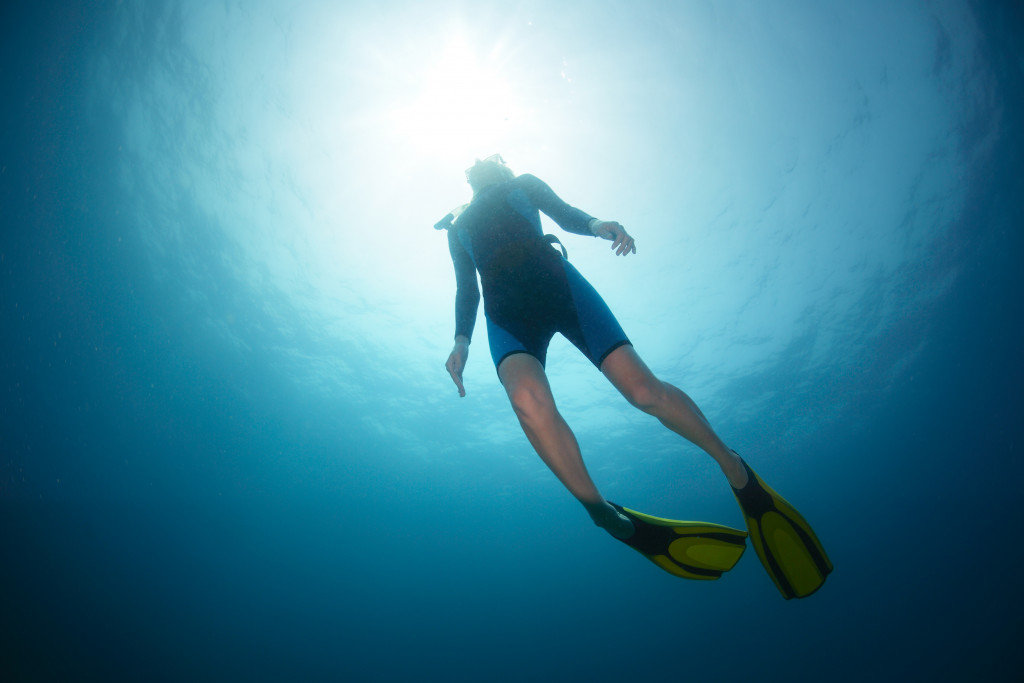- Traditional Chinese Medicine (TCM) is an affordable, side-effect-mitigating, personalized health option in many countries.
- Diving Medicine is an essential health resource for scuba divers and underwater enthusiasts.
- Essential oils like lavender, peppermint, and tea tree can treat travel-related ailments such as sleeplessness, motion sickness, and skin irritations.
- Unpopular health and medicine options can enhance your travel experience and provide effective health solutions.
Traveling can be a wonderful experience, but it can also be stressful and chaotic, especially when it comes to maintaining health and well-being. Sometimes, it can be challenging to find the proper health and medicine options when you’re traveling, and more often than not, you stick with the most popular ones. However, did you know that there are many unpopular health and medicine options out there that can be just as effective, if not more so? This article will explore some of the uncommon health and medicine options that you can consider the next time you travel.
Traditional Chinese Medicine (TCM)
If you’re looking for an alternative medicine option, TCM might be just what you need. TCM is an ancient practice that uses herbs, acupuncture, and other methods to treat a wide variety of illnesses and ailments. Although it may seem daunting at first, many people swear by TCM as a way to improve their overall health and well-being. Here are other factors to consider:
TCM Is Affordable in Many Countries
In many countries, particularly in East Asia, TCM is not only easily accessible but is also quite affordable. The cost of TCM treatments is often significantly lower than that of Western medicine, making it a viable option for travelers on a budget. Furthermore, as it’s deeply ingrained in the local culture, finding a TCM practitioner in these countries is often as easy as walking into a local pharmacy or health store.
It Can Help You Avoid the Side Effects of Western Medicines
The use of TCM can also help mitigate the side effects commonly associated with Western medications. Traditional medicines are typically derived from natural ingredients and are less processed compared to their Western counterparts. As such, they tend to produce fewer side effects, making them an appealing choice for individuals conscious about what they put in their bodies. However, it’s crucial to consult with a knowledgeable practitioner to ensure that these treatments align with your specific health needs while traveling.
TCM Treatments Are More Personalized and Holistic
Unlike Western medicine, which often adopts a one-size-fits-all approach, TCM treatments are personalized and holistic. Practitioners of TCM look at the whole individual, taking into account their physical, mental, and emotional health, as well as lifestyle factors. This means that the treatments you receive are tailored to your specific needs and conditions, potentially offering a more effective solution.

Diving Medicine
Diving medicine, more commonly associated with scuba divers and enthusiasts, is a specialized practice dedicated to diagnosing and treating conditions related to underwater diving. It’s an often overlooked but essential health option for those who engage in recreational or professional diving.
Having a basic understanding of diving medicine can prove to be invaluable, especially in remote locations where immediate medical help may not be readily available. For this reason, travelers who plan to dive should consider investing in comprehensive diving books that provide insights into preventive measures, common diving-related health issues, and their appropriate treatments.
Furthermore, if you’re planning to dive in a foreign country, it’s also beneficial to research and identify diving clinics or hospitals that specialize in diving medicine. This could be particularly useful in case of emergencies, where the doctor may not be familiar with your specific condition.

Essential Oils
Essential oils have become more prevalent in recent years, but they’re still considered an unpopular option by some. Nevertheless, essential oils can be a great addition to your travel health kit. They can be used to treat many common ailments, such as headaches, nausea, and fatigue. Here are some examples:
Lavender Oil for Relaxation and Sleep
Lavender oil is known for its calming properties , making it an excellent choice for travelers who have trouble sleeping. A few drops on your pillow or a small inhaler can help you relax and improve the quality of your sleep.
Peppermint Oil for Motion Sickness
Motion sickness can be a common issue while traveling, and peppermint oil can help alleviate its symptoms. A small drop on a tissue or inhaler can provide relief from nausea and dizziness.
Tea Tree Oil for Skin Irritations
Traveling often exposes people to new environments and elements that can cause skin irritations like insect bites, rashes, or sunburns. Tea tree oil is a natural antiseptic and anti-inflammatory that can help soothe these irritations and promote healing.
Traveling can have a profound impact on your health and well-being. By exploring some of these unpopular health and medicine options the next time you travel, you can discover new ways to care for yourself and enhance your travel experience. Whether it’s trying out traditional Chinese medicine, researching diving medicine, or incorporating essential oils into your travel health kit, these options can offer safe and effective solutions for your health needs while on the go. Remember to always consult with a healthcare professional before trying any new treatments and have a happy and healthy trip.



